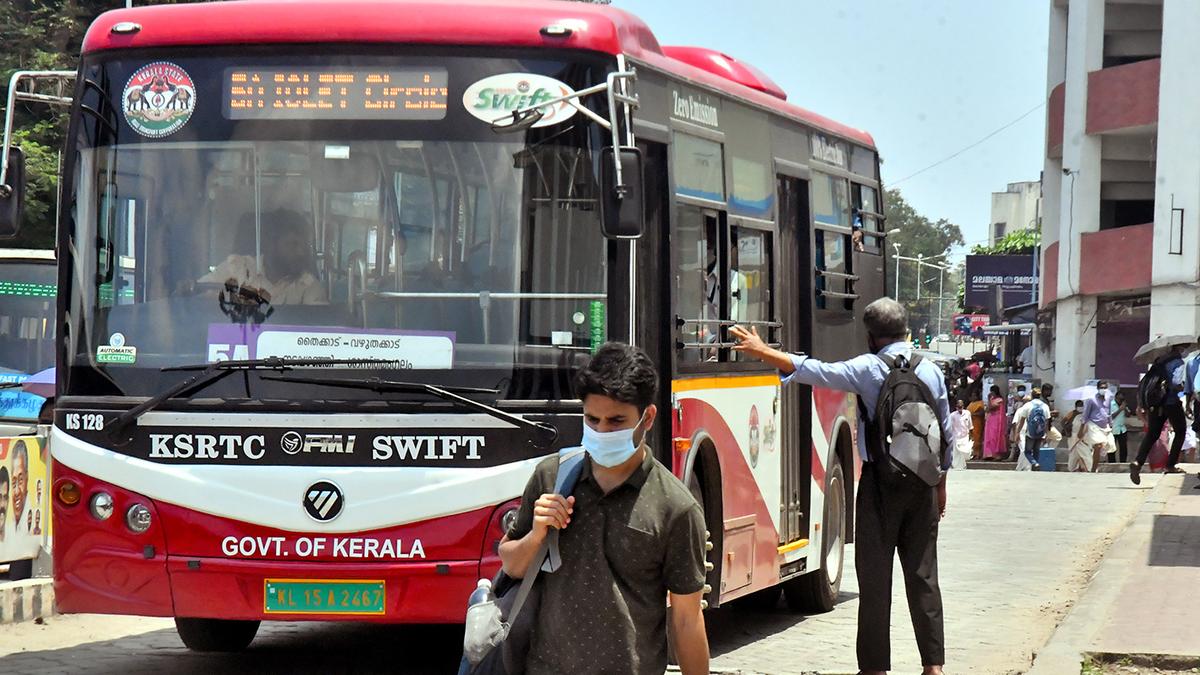Thiruvananthapuram had an early-bird advantage, with the KSRTC operating around 120 e-buses on 48 routes that were procured under the e-mobility component of Smart City Thiruvananthapuram Limited (SCTL). A KSRTC Swift electric buses operating in Thiruvananthapuram.
| Photo Credit: FILE PHOTO
The Kochi metro will receive its long-overdue fleet of feeder buses in September. A total of 15 air-conditioned electric buses would start operating services from metro stations to commercial hubs and suburban towns, according to informed sources.
Kochi Metro Rail Limited (KMRL) had placed orders earlier this year to procure as many as 32 e-buses. This was after the KSRTC cited a shortage of buses to operate adequate feeder services from metro stations. The buses were earlier scheduled to be delivered in June.
The specific routes for the buses would be decided shortly. Being relatively shorter than conventional buses, the 9-metre-long buses would be able to negotiate through traffic snarls and bottlenecked junctions with ease as compared to their long-chassis counterparts. Talks were under way with the KSEB to ensure uninterrupted power supply to charging stations planned at select metro stations, the sources said.
The number of e-buses in Ernakulam district was minimal, except for a few feeder buses operating on lease basis from the Aluva metro station to the international airport located around 10 km away. Thiruvananthapuram, however, had an early-bird advantage, with the KSRTC operating around 120 e-buses on 48 routes that were procured under the e-mobility component of Smart City Thiruvananthapuram Limited (SCTL).
Proposals to operate feeder buses from metro stations date back to 2017 when the metro’s 12-km-long Aluva-Palarivattom corridor was commissioned. These buses were expected to enhance first- and last-mile connectivity, boosting patronage in the 28-km-long Aluva-Thripunithura metro corridor.
Increasing patronage from the current daily average of around 1 lakh commuters is crucial to reduce the revenue-expenditure gap. The metro has been incurring a daily loss of around ₹1 crore due to lower than expected footfall and insufficient non-ticketing revenue.

